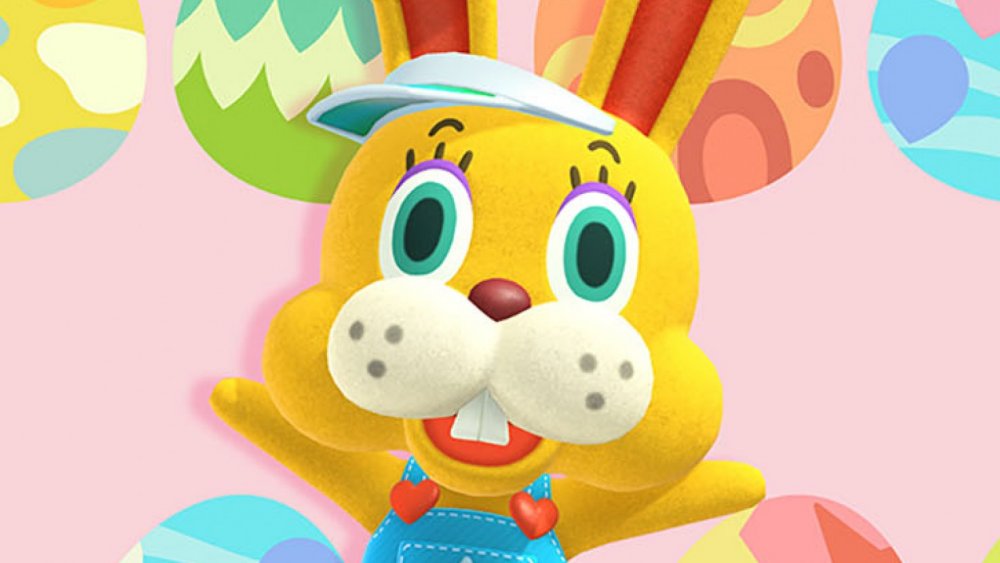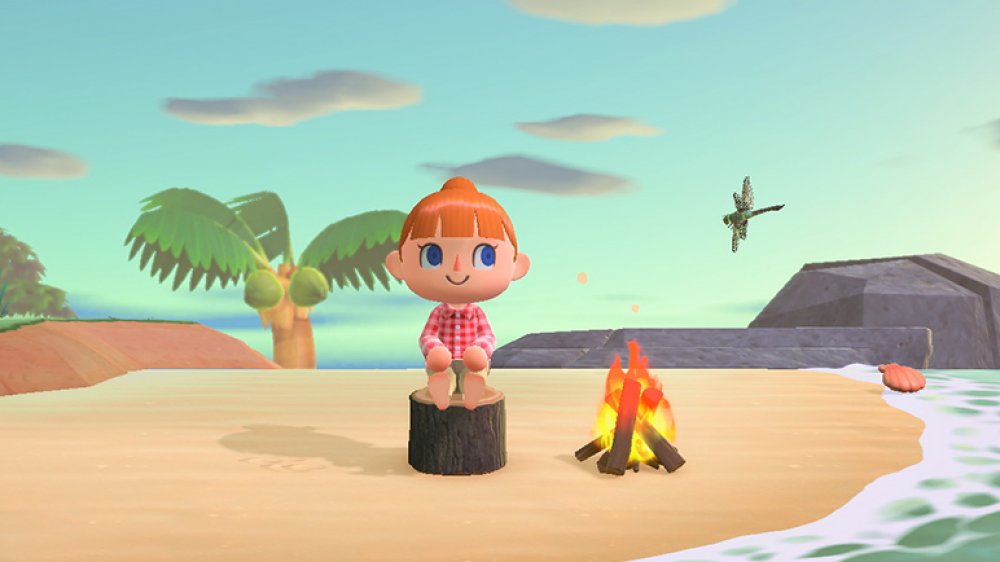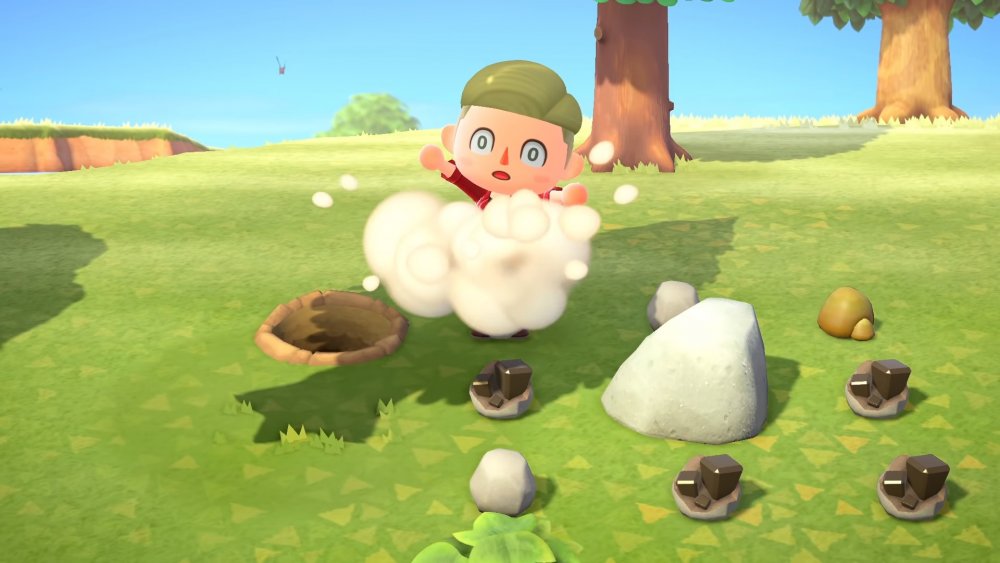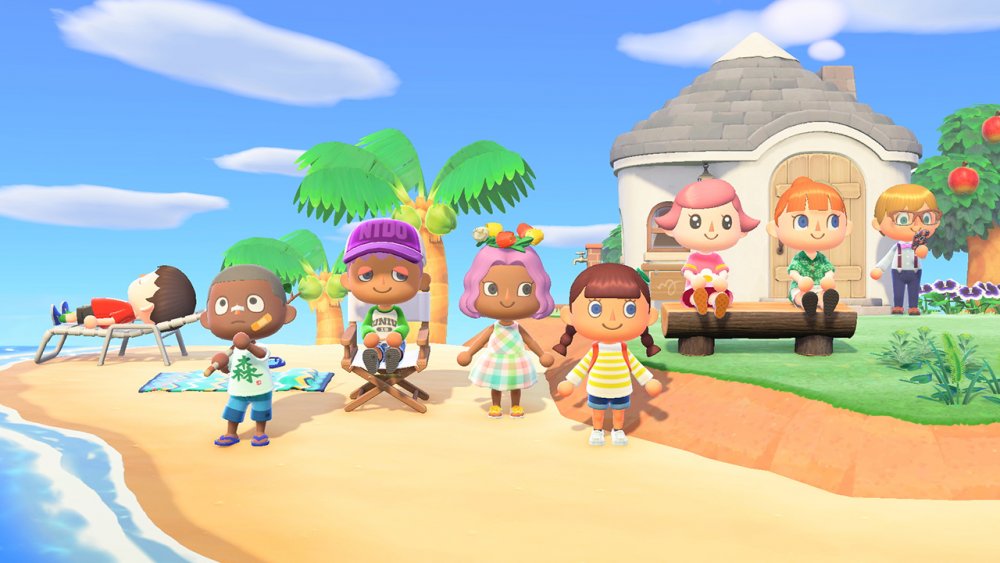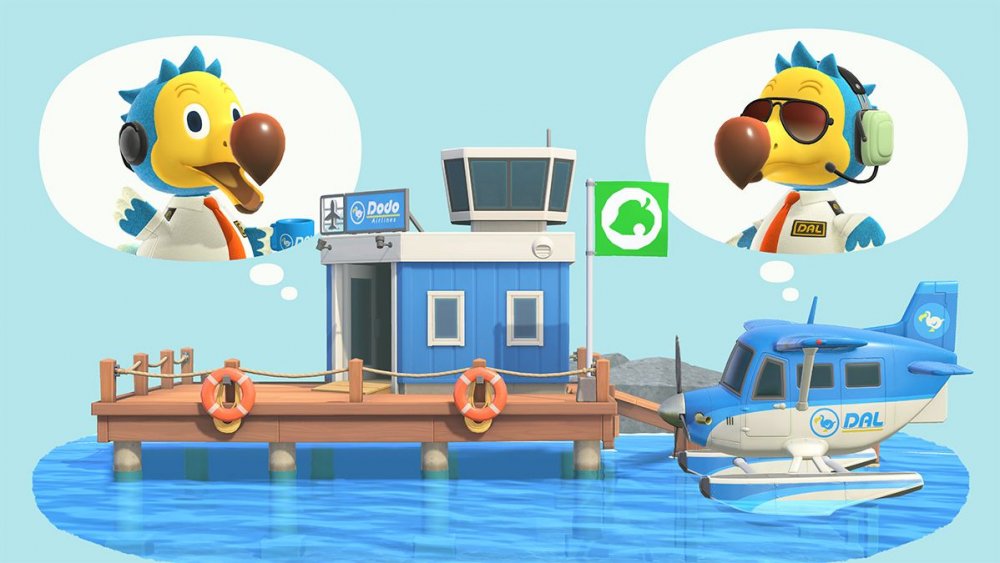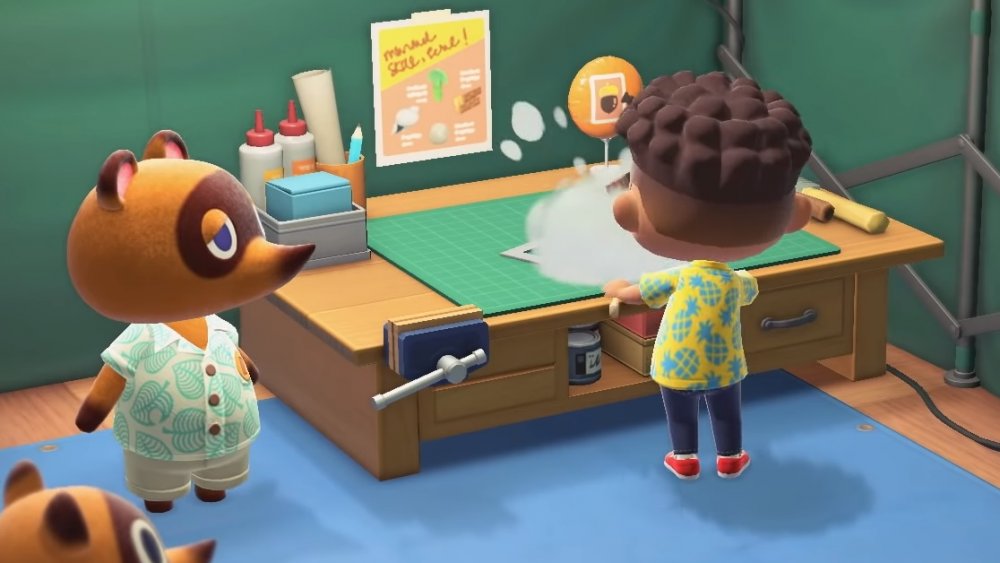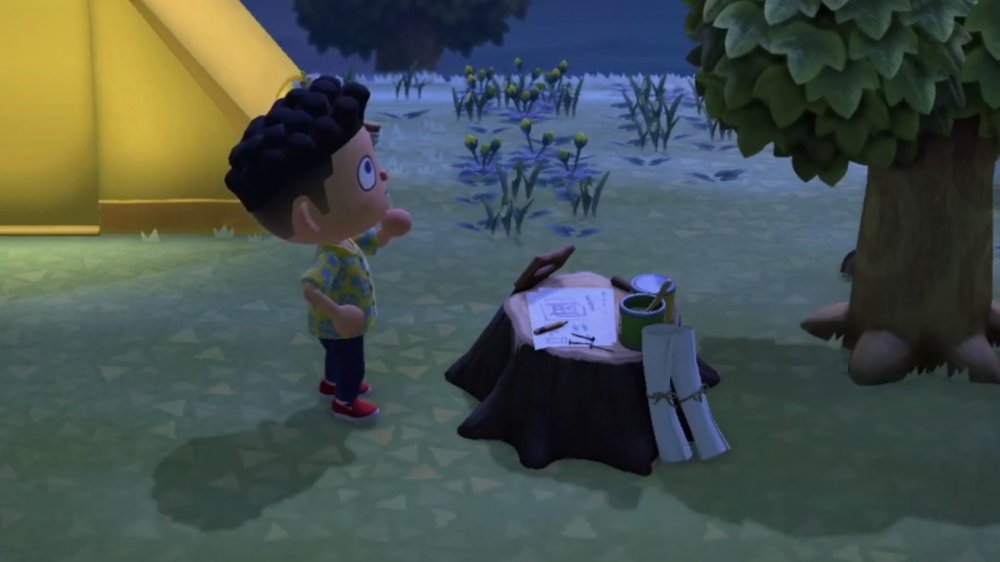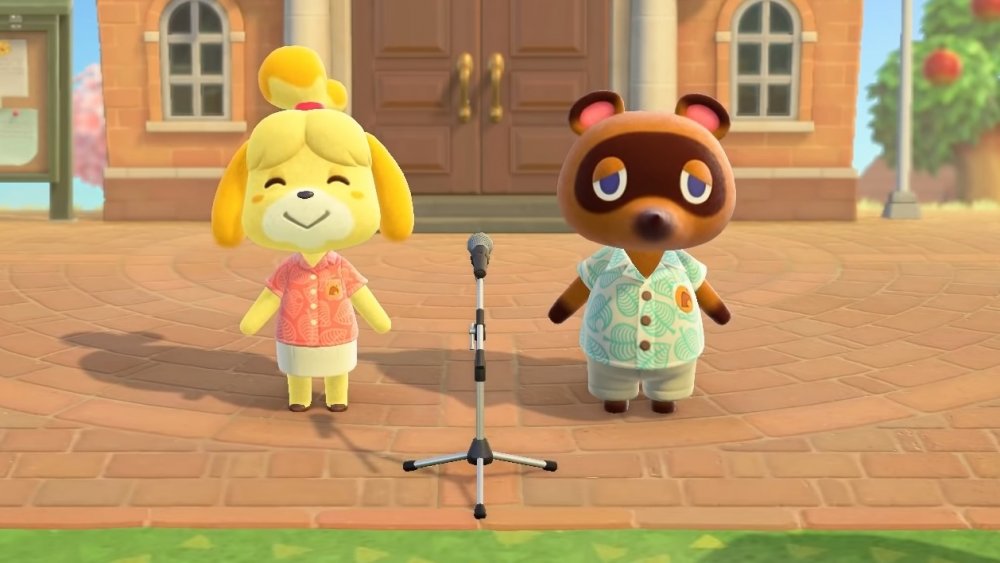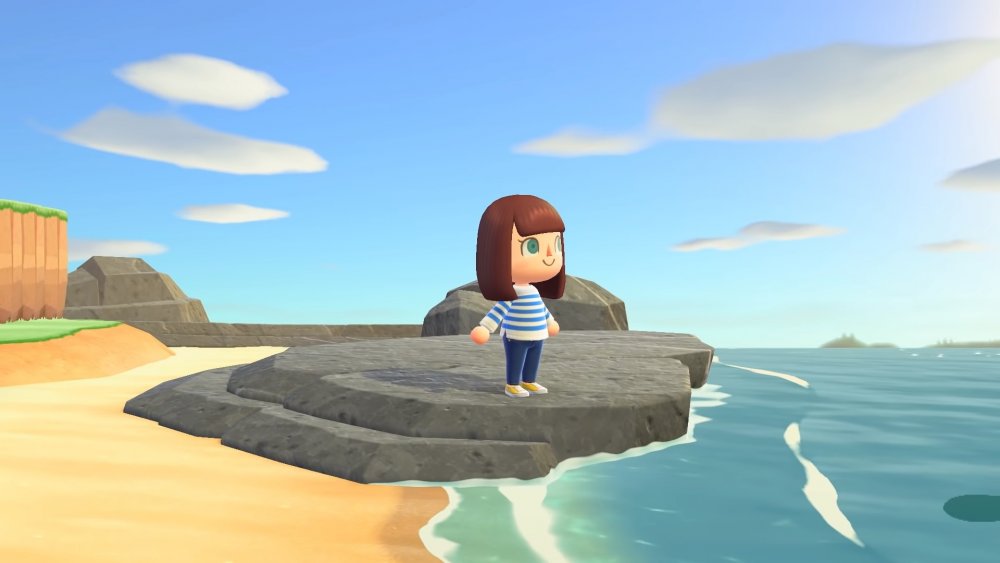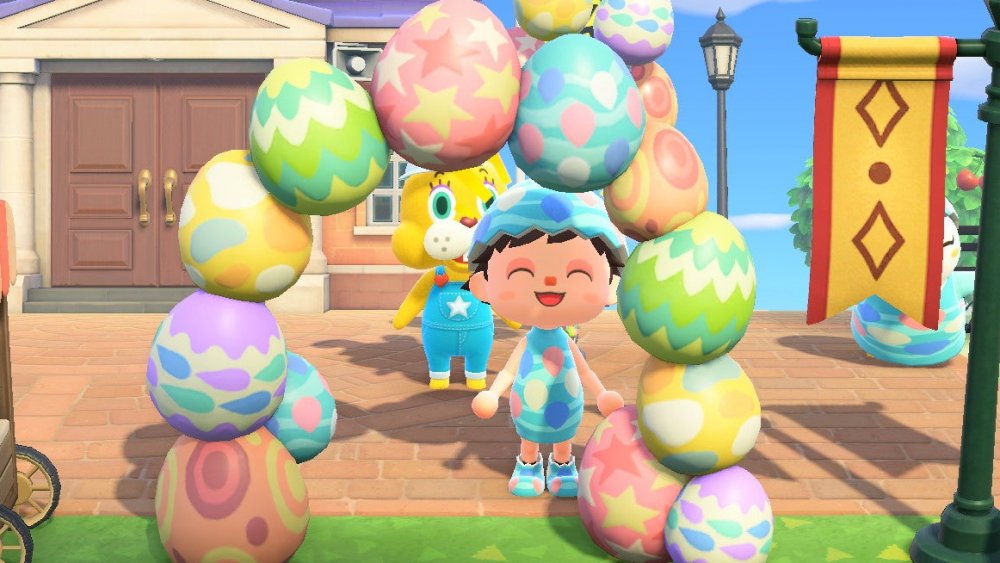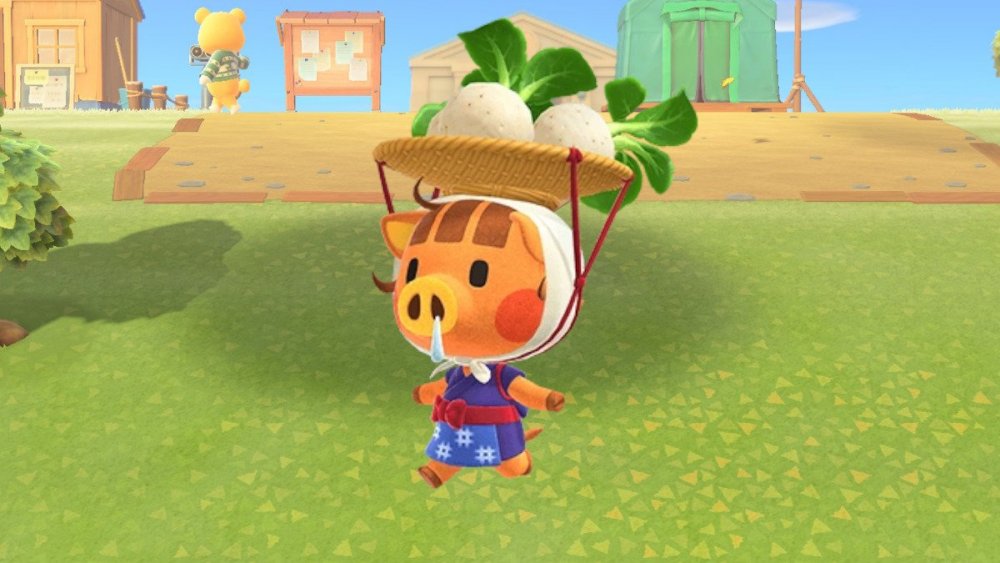Big Problems Animal Crossing: New Horizons Needs To Fix
Animal Crossing: New Horizons is the biggest, most ambitious Animal Crossing title to date. The developers have been polishing their craft for about two decades, so expectations for the latest entry in the series were understandably high. Unfortunately, reality often comes with a strong dose of disappointment. For every Half-Life: Alyx, it seems there's at least one Fallout 76 waiting in the wings.
Despite all its improvements, Animal Crossing: New Horizons takes two steps forward and one step back. Some of the impressive new features come with downsides that make you question, "What in Tom Nook's sizable bank account were they thinking?" Granted, these issues aren't enough to derail New Horizons' generally positive experience, but they are the kinds of quibbles that should have been prevented by the quality assurance team.
From catty limitations and repetitive gameplay elements to poorly thought out special events, these are the problems Animal Crossing: New Horizons needs to fix.
There can be only one (island and primary resident)
As is standard with modern gaming consoles, the Nintendo Switch supports multiple player accounts. This feature extends to Animal Crossing: New Horizons, and you can even have up to 8 players on an island at a time. Sounds like fun for the whole family, right? Not so fast: gamers are limited to one island per Switch. Have a little brother or sister who wants their own island to personalize? Unless you buy them a new Switch and a copy of New Horizons, they'll have to learn to share.
To make matters worse, the first character who visits the island is labeled as the primary resident — everyone else is treated as a second-class citizen. They can't receive new item recipes, help upgrade the island, or perform many of the other important activities that make Animal Crossing, well, Animal Crossing.
Many gamers have pointed out that it seems pointless to give players the option to live on an island they can barely interact with, especially since they can't make their own island. Nintendo really dropped the screaming gyroid with this gaffe of a "feature." Ironically, the original Animal Crossing doesn't suffer from this shortcoming, as that game lets players create multiple villages for their family members, albeit on separate memory cards.
Tools suffer from "Breath of the Wild Fragile Weapon Syndrome"
One of New Horizons' selling features is craftable items. You can either buy tools like the axe or bug net from the Nooks or build your own. No matter how you obtain tools, though, they will wear down so regularly you can set your clock to their disintegration.
Nintendo games are no stranger to item durability systems, but the most iconic (and worst) example may be The Legend of Zelda: Breath of the Wild. In that game, every weapon except the Master Sword sublimates into a cloud of particles after what seems like a few swings. The nigh universal hatred directed at this mechanic didn't stop Animal Crossing developers from implementing a similar expedited durability system into New Horizons.
Now everyone can experience the joy of watching their beloved tools self-destruct. Granted, past Animal Crossing games featured tool durability, but that system was limited to axes. In New Horizons, however, every tool — including the bug net and fishing rod — breaks after a few uses.
The issues don't end there, though, as the legendary golden items aren't immune to artificial aging in New Horizons. What used to be unbreakable pinnacles of craftsmanship have been nerfed into shiny objects that are marginally more durable than real-life golden tools. Thanks, Nintendo. Now give back watering cans that don't break after 20 minutes.
Multiplayer is heavily restricted
Thanks to the internet, just about everyone can play video games with their friends even when they are not sitting on the same couch. That's not to say couch co-op has completely disappeared, as demonstrated by New Horizons' local multiplayer mode. However, while players are on even footing during most multiplayer games, the Animal Crossing developers did not get that crucial memo.
Players can join friends to wander their islands, but that's about it. Sure, guests can use tools and move furniture, but they can't access their in-game phone or inventories unless designated as the "Leader." Plus, the secondary players ("Followers") are literally tethered to the host. The camera follows the Leader, and everyone who wanders off-screen is automatically ninja poofed on top of the main player. Further, anything a Follower collects is teleported to the island's recycle box because New Horizons' local multiplayer doesn't believe in the finders keepers rule.
Granted, these restrictions are primarily due to the Nintendo Switch's hardware limitations, but they are still disappointing. Online multiplayer — which requires a Nintendo Switch Online subscription — features different problems such as locking visitors out of using axes and shovels unless they are "best friends" with the island's owner. No matter how you slice it, New Horizons' multiplayer is good on paper but Mr. Resetti rant-inducing in practice.
Essential services are locked behind repetitive dialogue and menus
Characters love to talk in New Horizons, almost to the point players want to skip through their ramblings. However, some conversations are worse than others. Much, much worse. The two biggest offenders are the museum curator Blathers and the Dodo Airlines brothers Orville and Wilbur. Their services are essential: Blathers lets you deck out the museum with fossils, bugs, and fish, while Orville and Wilbur offer the only way off your island.
Since these characters provide unique services, their chats feature special menus that, unfortunately, break modern menu conventions. If players, for example, accidentally tell Orville they want to play with friends online when they actually want to play locally, they can't simply say, "I've changed my mind" and back up to another option. No, players have to start the whole conversation over again. The same applies to Blathers.
Most video game conversations are full of options to switch topics, and anyone who has conversed with another person in real-life knows that changing your mind mid-conversation without starting over is commonplace. Why New Horizons doesn't let players change their minds mid-menu is baffling. Worse, the game forces you to click through the same pointless dialogue to even access these menus in the first place.
Craft a new home for yourself (one item at a time)
Crafting is the name of the game in New Horizons. Players gather materials to build tools, use those tools to obtain more materials, and combine those materials to craft even better tools (and decorations) in a never-ending cycle that will give some gamers Minecraft flashbacks. The crafting portion of New Horizons' gameplay loop encompasses a significant portion of your time, largely because the process isn't streamlined.
Want to craft something? You have to find a workbench, select the option to craft an item, choose what you want to build, confirm you want to create it, and finally confirm you want to construct it again to make sure you didn't want to create something else instead. Then and only then can you craft items, and you have to repeat this process for everything you build. Every. Single. Time.
Want to craft multiple items at once? Not in New Horizons. Every tool and decoration is individually crafted by hand to provide the definitive — and monotonous — deserted island experience. The game doesn't care if you want to craft something as fantastic as a Godzilla statue or as mundane as fish bait. Everyone has to wade through a ton of repetitive menus because quality of life improvements are apparently an alien concept to the Nooks.
No crafting using stored materials
Inventory space is limited in New Horizons, especially when starting out. You probably won't have enough room in your pockets for all your crafting materials, so it's natural to place these materials in storage. But, you might ask, what happens when someone wants to craft items with stored materials? This is when the crafting system becomes truly tedious.
Some games let players construct items as long as they at least own the materials in storage. New Horizons is not one of these games. Players cannot build items with stored materials — if you don't have materials in your inventory, you can't craft anything. This limitation is problematic for players who want to craft tons of items since they have to venture to their home base, open their storage, swap unneeded items for materials, and travel back to the workbench before they can craft.
Granted, you can eventually unlock a workbench for your home. But, you still need to play a game of hot potato with your hoard and retrieve materials from storage if you want to build anything. New Horizons is supposed to be a slow game, but the inability to craft with stored materials slows it down way too much.
It takes longer to load the game than to pay off your debt to Tom Nook
Loading screens can make or break a game. Some titles load lightning fast, while others chug along at the speed of continental drift. New Horizons, according to some reports, is one of the latter, and for some Switch owners, the game is the slowest title in the history of video games.
Certain players claim New Horizons sometimes takes seven minutes to load, while others have clocked the game taking anywhere between 10 and 20 minutes. An unlucky few have even reported their console occasionally refuses to load the game at all.
Thankfully, the Animal Crossing community readily helps members plagued by long loading screens. The culprit is often poor WiFi connections, and turning on airplane mode does the trick. However, airplane mode removes all internet connectivity, which prevents online multiplayer fun. If the solution for slow loading screens requires the temporary surgical removal of a system vital for a game feature, then New Horizons is in dire need of a patch.
Repetitive Refrains Repeated Regularly
Most gamers agree the Animal Crossing series features some of the most relaxing music produced for video games. It doesn't matter if you play at midnight or eight in the morning — each Animal Crossing entry provides a new comforting track every hour, on the hour. New Horizons, however, opts for a different strategy that will likely grate on some nerves.
Until you reach a specific (and hidden) in-game milestone, music in New Horizons repeats on loop ad infinitum. The game also doesn't tell audiences it breaks from tradition. Gamers might boot up the game assuming music will change each hour, but it won't.
If you want New Horizons' music to automatically swap, you need to upgrade the Resident Services and turn it into a bona fide town hall. Before you can do this, you must recruit five villagers to join your island, but anyone going in blind won't know this. Once the town hall is ready, though, the music automatically swaps every so often. Alternatively, players can ask Isabelle to manually change it.
This new town hall requirement is at odds with past Animal Crossing games that treat music changes as a gift, not as an unlockable. Hiding the feature behind a mystery milestone only adds to the frustration.
The materials and miles grind
Crafting in New Horizons is both a blessing and a curse. On one hand, you experience a sense of pride and accomplishment when you collect all the materials necessary to build an item you've wanted for a while. On the other hand, you probably wanted that item for a while because that's how long it takes to collect the necessary materials.
Some recipes require a scant few components; others require far too many materials to collect on an island in one day. While players can always visit other deserted islands that are full of untapped resources, they need a Nook Miles Ticket first. You can only buy tickets with Nook Miles (obviously), which are only earned by completing activities. You can probably see where this is going.
New Horizons' more expensive recipes are designed to make players grind. They grind for materials, as well as the points required to visit other islands to speed up the process. Players grind just to grind some more. While annoying for anyone who expects a relaxing vacation experience from New Horizons, at least the game doesn't weasel in microtransactions that sell materials for $5.00.
The disaster that was Bunny Day
New Horizons' Bunny Day took a page out of MMORPGs. What better way to celebrate a real-world holiday (Easter) than an in-game event with limited-time rewards like unique crafting recipes and materials? Sounds like a guaranteed sunny-side-up success, but the result was a little more scrambled than intended. On the bright side, Nintendo can learn from its mistakes.
Bunny Day was fun on paper but annoying in practice. Many users were hard boiling mad over recipe scarcity and the overabundance of eggs that multiplied like rabbits. Moreover, gamers learned the hard way that many eggs were hidden as general, all-purpose resources. Everything from fossils to fish were actually eggs in disguise.
Players found their inventories and storage overflowing with baskets of eggs and not enough recipes to use them. Not the best way to spend New Horizons' first event, but if Nintendo fixes the event material-to-general material ratio and makes event recipes more common, future in-game events won't leave players so shell shocked.
The Stalk Market waits for no one
There's two ways to make money in New Horizons: the hard way and the risky way. Players can go about their days earning bells like any blue collar worker, or they can use turnips to hopefully turn a profit. Yes, turnips. But that assumes players can even get their hands on these rare roots.
After you unlock Nook's Cranny, the friendly Daisy Mae will visit your island every Sunday from 5 a.m. to 12 p.m. to sell turnips at varying prices. You then have one week to sell these turnips to the Nook brothers. The goal here is to buy low and sell high, which is why Daisy Mae's wandering store is called the Stalk Market. Because puns.
Unfortunately, New Horizons runs on real-world time, and anyone who misses Daisy Mae one Sunday has to wait until the next Sunday to purchase her wares. Moreover, many gamers can't find Daisy Mae because she doesn't seem to pop up in the same place twice. This system is problematic for late risers and others who have Sunday morning obligations because they might never encounter her.
Some players luck out and the Nook brothers offer them a good price on turnips. But, if a player's Sunday mornings are completely full, they will never get the opportunity to buy turnips and hope the Stalk Market favors them.

